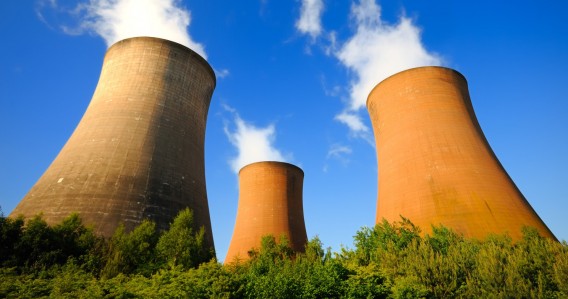Russia is on a quest to create a global nuclear empire with risks that go beyond the threat of nuclear power. With forces grounded in Ukraine and Syria, Russia has a proclivity for foreign policies that outsiders, at least on the surface, do not understand.
Given the post-Fukushima disaster, Russia’s goal to be at the forefront of nuclear energy seems bound for failure. Nevertheless, the country has still managed to attract the attention of investors with deep pockets. Russia has been surreptitious in their efforts to become a global nuclear empire, which has so far gone unchallenged by the handful of people capable of swaying international discourse.
Russia’s model to become a nuclear regime is fairly simple. The country’s nuclear energy program extends back to the advent of nuclear power. Their state-owned nuclear vendor, Rosatom, can provide the “industry’s entire range of products and services.” In addition, in the last five years, Russia has been secretly cornering the nuclear energy market, signing off contracts to install nuclear power plants with over 30 countries.(1)
Russia’s nuclear power diplomacy takes international stage
Consequently, Russia’s nuclear power diplomacy has made its way onto an international stage. Countries that have signed nuclear power plant contracts with Russia are spread across the globe. These include Argentina, Egypt, Saudi Arabia and Turkey. In 2014, Russia planned to build 29 nuclear facilities abroad. Rosatom states they hope to increase that number to 80 within a few years.(1)
Other countries, like the United States and France, are also capable of creating nuclear power plants abroad. Regardless, no other country has relentlessly pursued and cashed-in on the international demand for nuclear energy more than Russia.
The fact that Russia has been able to maintain nuclear power agreements following the 2011 Fukushima Daiichi disaster demonstrates that, from a global perspective, the decline in nuclear energy is not as steep as previously believed. Russia’s ability to secure a catalog of nuclear power contracts suggests nuclear energy may even rise in the long-term.
The U.S. Department of Commerce estimates $750 billion will be made from the stream of revenue created by nuclear technologies between now and 2025. Since Rosatom claims to have a monopoly on the international nuclear industry, vast amounts of that revenue stream will go to Kremlin’s bank account. The nuclear industry will stand firmly alongside oil and natural gas as an adhesive to an otherwise crippled economy.(1)
Moscow secures nuclear facilities abroad for the long-term
The fact that Russia has secured so many nuclear facilities abroad should not be understated. Nuclear power plants take years to build and maintain. The average lifespan for a nuclear power plant is 40 years, and the United States even hopes to extend the lifespan of its nuclear facilities to 80 years. The construction of Russia’s power plants will stretch across the globe and last for decades, or maybe even centuries.(2)
Furthermore, Moscow has also secured contracts with countries like Turkey predicated on a “build-own-operate” framework, which would enable Russia to build, own and permanently operate a nuclear facility in other countries. When seen from this perspective, Russia’s nuclear facilities are more like military bases than they are power plants.(1)
Western influence is expected to continue to weaken in states like Egypt, Turkey and Algeria. Russia’s presence abroad will provide Moscow with intelligence opportunities that would otherwise be extremely difficult or next to impossible to obtain.
Currently, Russia is in a good position to continue broadening its nuclear power diplomacy. Nevertheless, Russia’s expanded sphere of influence will not go forever unnoticed. Alternative nuclear companies may burgeon in the medium-term.
Just this week, for instance, China secured an agreement with the United Kingdom to authorize a nuclear power plant in Essex. Although the agreement is small change in comparison to Russia’s contracts, the deal may mark a Russia-China nuclear empire rivalry in the near future.
Sources include:


